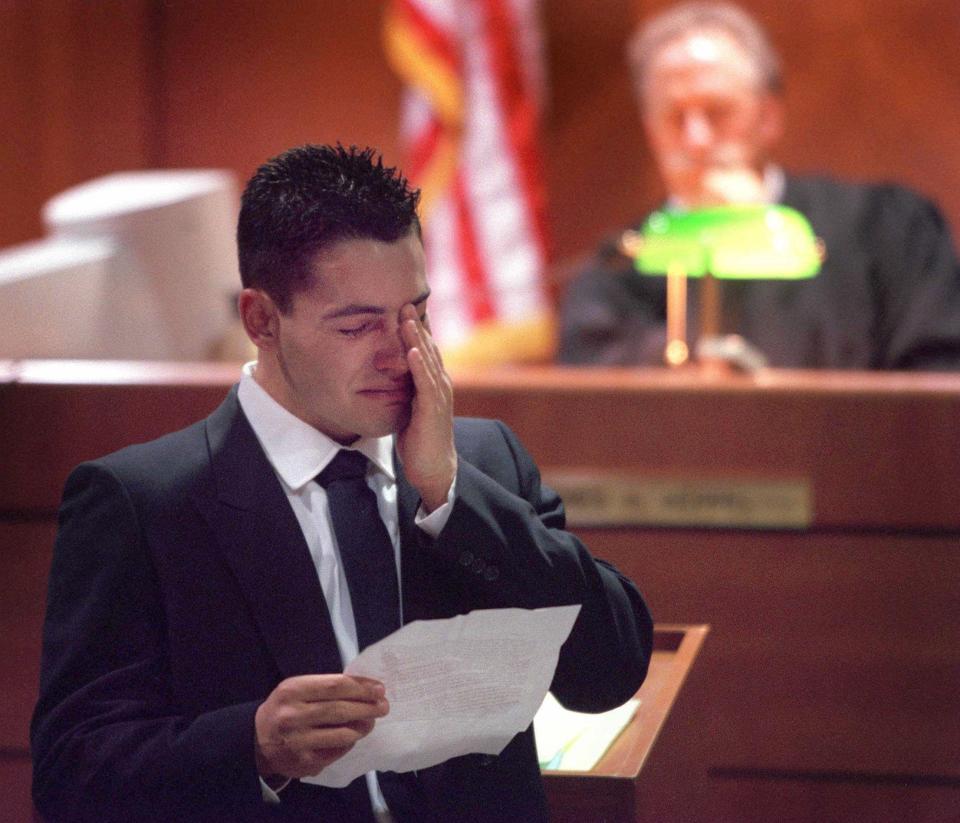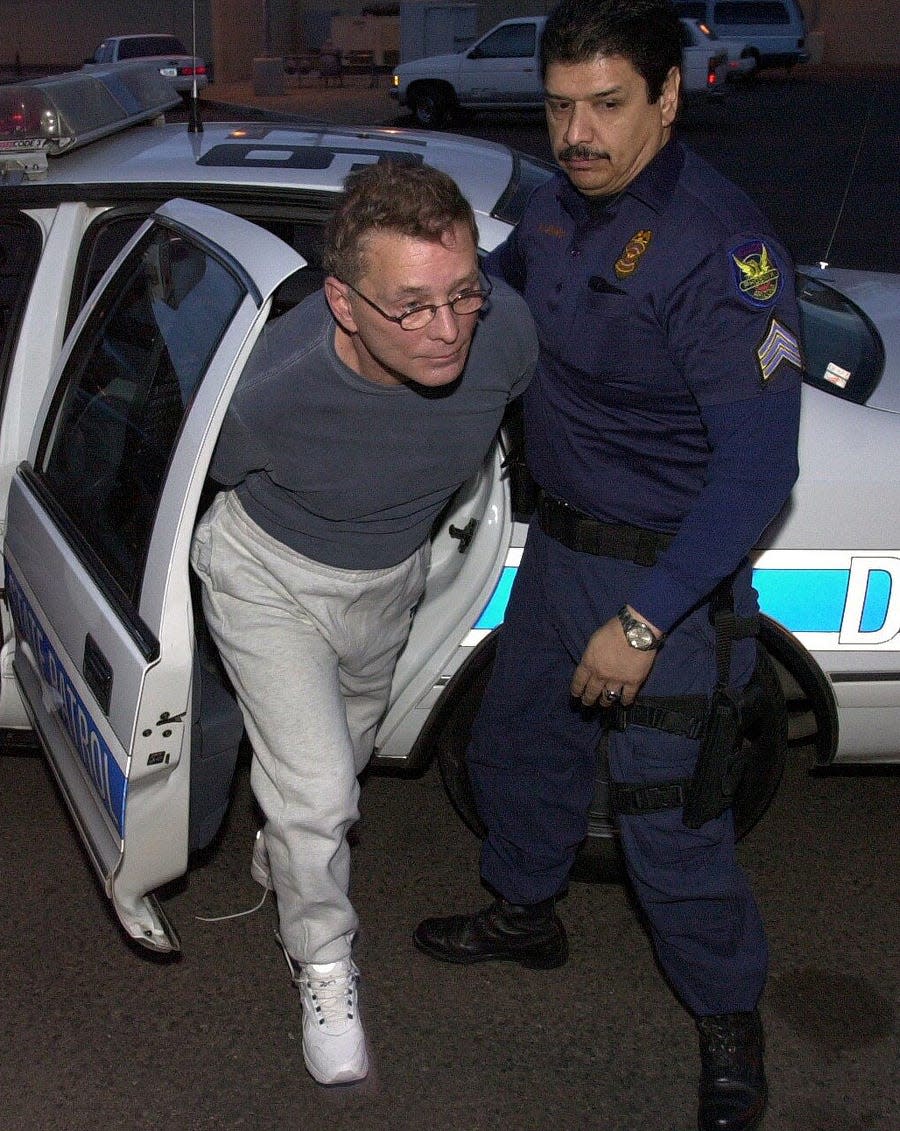Gilbert's 'Devil Dogs': Who were they and what happened to them?
A gang of teens in the 1990s dubbed the "Devil Dogs" terrorized Gilbert residents with a string of assaults and beatings.
It’s a dark chapter in the town’s history that can be traced back to a mobster, drugs and white supremacist rhetoric. The group that evolved into the Devil Dogs in 1999 was formed as far back as 1992.
The gang violence shocked the town, which was experiencing explosive growth.
One beating led to several teens serving jail sentences. Ties to a drug trafficking ring led to the Devil Dogs gaining national attention. A local outcry for accountability and a culture change led to an intervention in schools.
Circumstances surrounding the recent killing of teenager Preston Lord in Queen Creek, notably suspicions about a group of violent teens dubbed the "Gilbert Goons," echo the types of attacks at the hands of the Devil Dogs a quarter-century earlier.

Who were the Devil Dogs?
The Devil Dogs were an offshoot of an older gang called White Power, which was one of 13 documented gangs in Gilbert in 1993. By 1995, the town had identified 21 gangs with more than 400 members.
Gilbert police later identified 45 of them as part of the Devil Dogs. The group was largely made up of middle-class white teens. Several were Highland High School student-athletes.
There were several documented cases of the teens yelling white supremacist rhetoric, forcing others to do Nazi salutes and beating other boys. The boys would yell racial slurs and bark at their victims during attacks.
During searches, police found “several bottles” of steroids, which the teens admitted to using.
What happened to the Devil Dogs?
At least eight members were arrested in 1999 for crimes associated with the gang.
Even more public pressure mounted after the assault of teen Jordan Jarvis left him disfigured.
Four teens were arrested and tried in court for the assault. Two teens, Kevin Papa and Michael Spears, served prison time for a year. The others pled guilty to reduce their charges and were given probation.
Later, police in Gilbert, Mesa and Phoenix connected the Devil Dogs to the former mobster Salvatore “Sammy the Bull” Gravano and a drug ring that trafficked ecstasy. At the time, it was said to be the largest-ever drug ring uncovered in Arizona.

Papa’s older brother Michael was Gravano’s business partner and a leader of the Devil Dogs.
The Papa brothers have been in and out of jail over the past several years, court records show.
Before Spears’ trial, his parents pulled him out of school and moved their family to Florida to get him away from the Devil Dogs. Other former members moved back into their Gilbert homes, and one member moved to Yavapai County.
Ripple effects left across the community
The Highland High School principal at the time mandated drug testing student-athletes. The school’s student council hosted a car wash fundraiser to raise money for Jarvis’s medical expenses and to try and repair the school's damaged reputation.
After the Devil Dogs’ terror, the town created a Human Relations Committee to address social issues surrounding the gang. The committee is now defunct.
A Town Council member at the time claimed he lost his re-election campaign because of his push to address the Devil Dogs publicly.
Reporter Maritza Dominguez covers Mesa, Gilbert and Queen Creek and can be reached at maritza.dominguez@arizonarepublic.com or 480-271-0646. Follow her on X, formerly Twitter: @maritzacdom.
This article originally appeared on Arizona Republic: Gilbert's 'Devil Dogs' had ties to drugs, white supremacy and beatings

